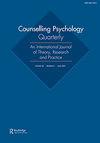“这就是我”:一个关于女性自信身份协商的基础理论
IF 1.5
Q3 PSYCHOLOGY, APPLIED
引用次数: 1
摘要
本文章由计算机程序翻译,如有差异,请以英文原文为准。
“This is who I am”: a grounded theory of women’s assertive identity negotiation
ABSTRACT Assertiveness development in women can be hindered by gendered norms of agreeableness and passivity. Despite this, many women become assertive, although less is known about how they negotiate the process. This grounded theory examined women’s assertiveness development based on experiences of eleven, primarily post-secondary educated women from a large Western Canada university. Women currently struggling with assertiveness (n = 6) and those who once struggled but now considered themselves more assertive (n = 5) were recruited to compare the immediate experience of barriers to assertiveness and reflections on overcoming these barriers, respectively. Semi-structured interviews and an assertiveness measure were used to capture participants’ convergent and divergent experiences. Participants’ main concerns centered on a desire to be socially accepted, which precluded assertive behaviour and culminated in personal costs such as not getting needs met. Processes in resolving these concerns involved cognitive, behavioural, and social changes, and finding a purpose in life that required assertiveness. These processes form the base of Assertive Identity Negotiation theory, where women negotiate an assertive identity by continually reflecting on and committing to self-assertion while balancing interpersonal concerns.
求助全文
通过发布文献求助,成功后即可免费获取论文全文。
去求助
来源期刊

Counselling Psychology Quarterly
PSYCHOLOGY, APPLIED-
CiteScore
6.20
自引率
6.70%
发文量
30
期刊介绍:
Counselling Psychology Quarterly is an international interdisciplinary journal, reporting on practice, research and theory. The journal is particularly keen to encourage and publish papers which will be of immediate practical relevance to counselling, clinical, occupational, health and medical psychologists throughout the world. Original, independently refereed contributions will be included on practice, research and theory - and especially articles which integrate these three areas - from whatever methodological or theoretical standpoint. The journal will also include international peer review commentaries on major issues.
 求助内容:
求助内容: 应助结果提醒方式:
应助结果提醒方式:


